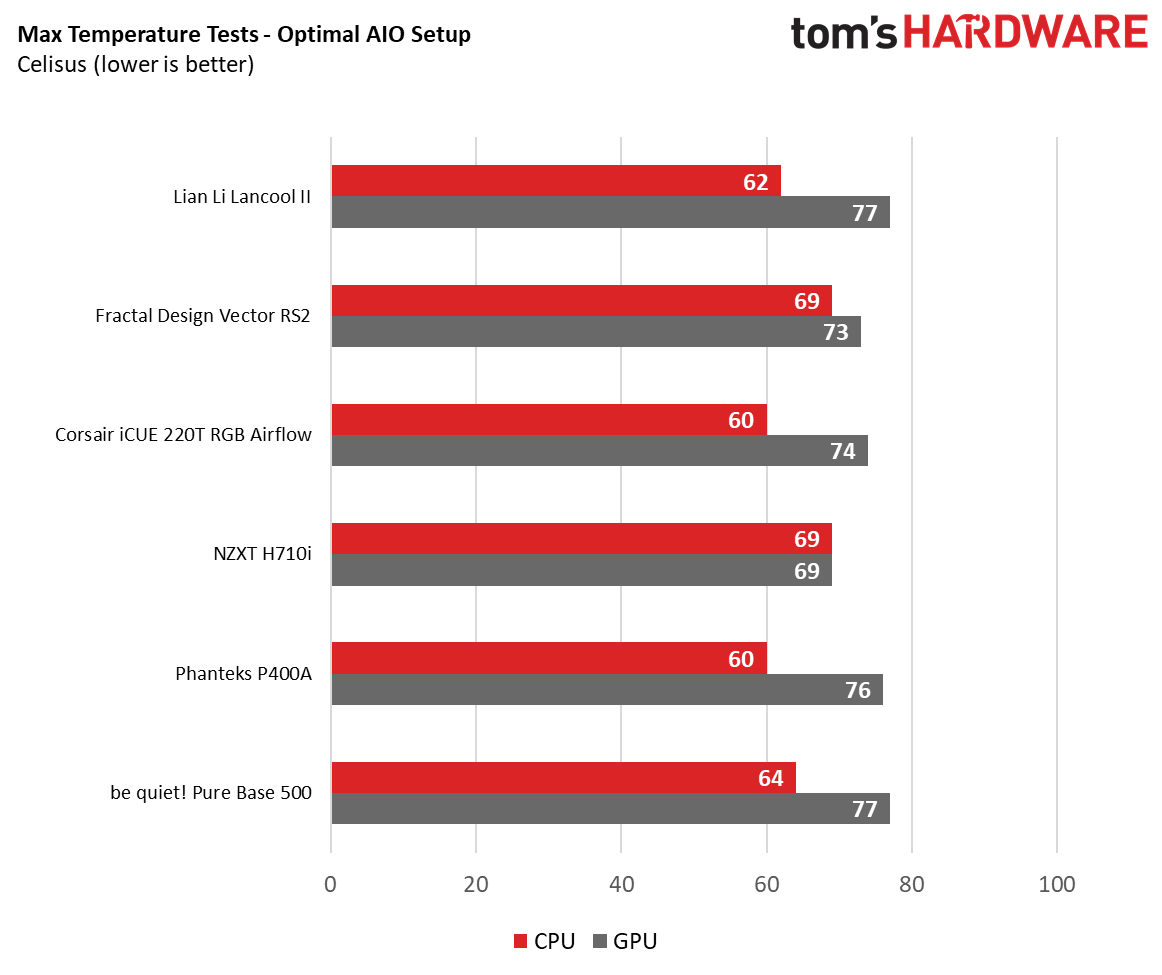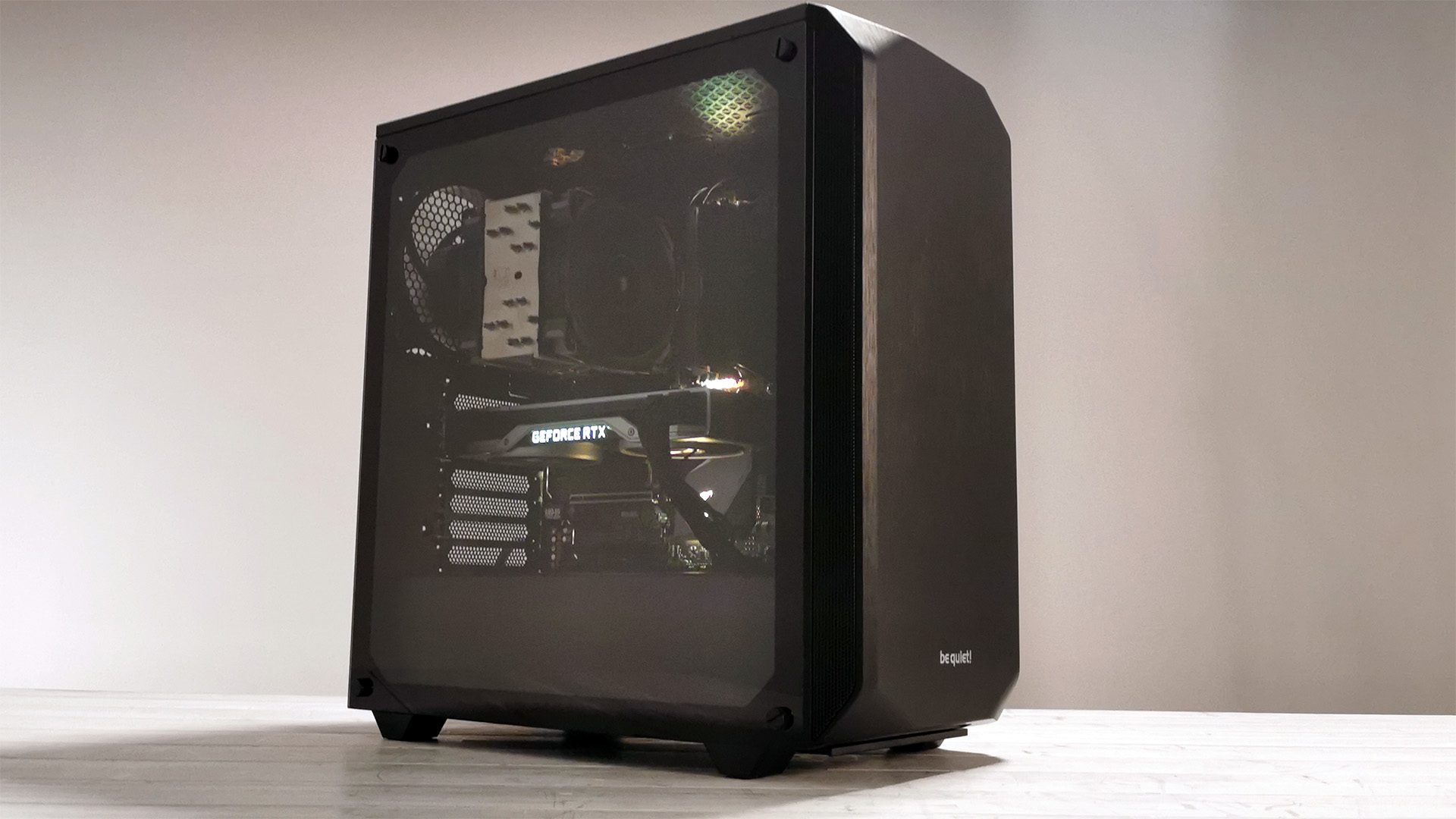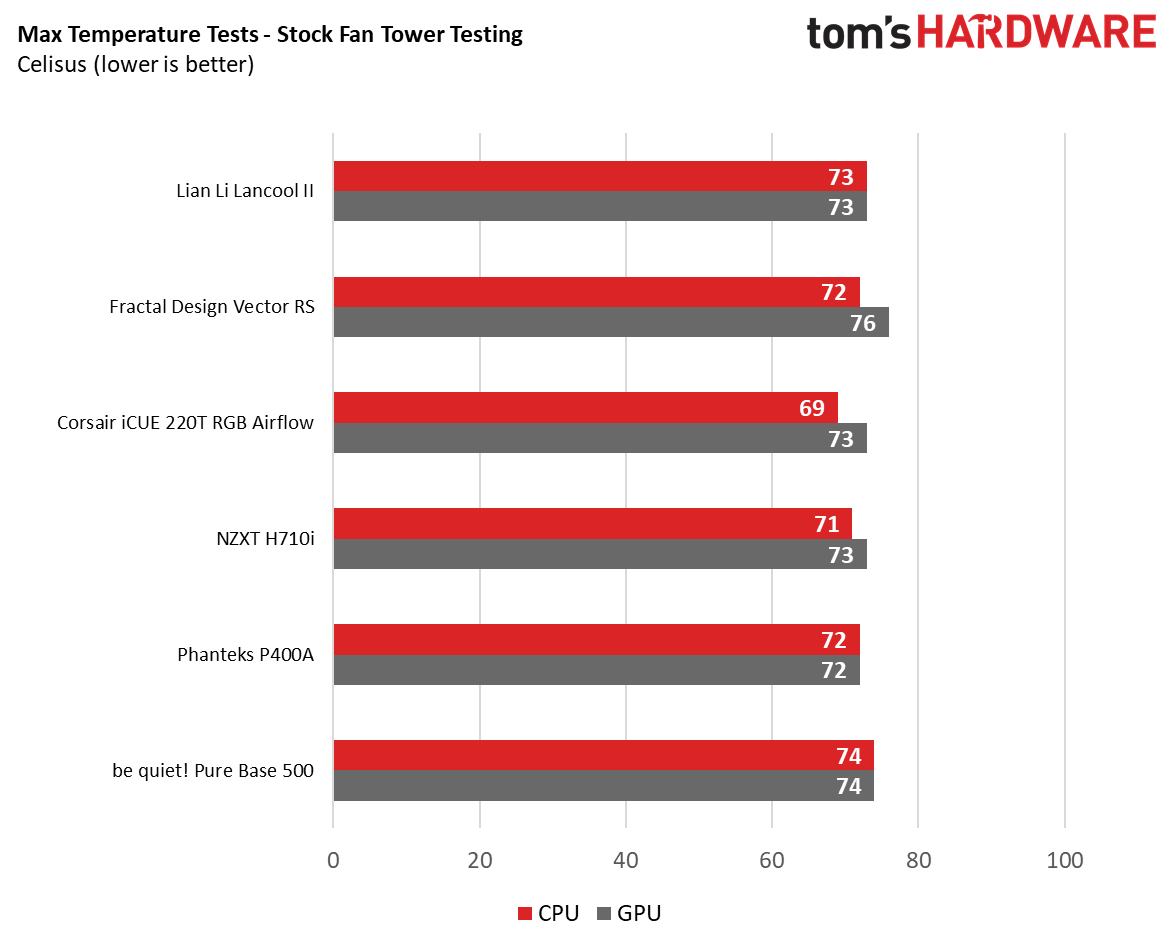Why you can trust Tom's Hardware
Performance
For our performance testing, we’ll be utilizing a Noctua NH-U12A CPU heatsink, equipped with 2x Corsair ML 120 Pro fans. This allows us to keep the included case fans that come as standard with the be quiet! Pure Base 500 in their factory installed locations during the testing procedure, and stops us from running into compatibility issues. It also gives us an ideal insight into how the case will perform for those who aren’t interested in moving the fans around.
With our second set of benchmarks, we’re reconfiguring the case into what we consider an “optimal” airflow setup, running alongside a 240mm AIO. The cooler (Corsair’s Hydro H100X) again features the exact same fans as found on the Noctua stock testing. But this way, we can showcase just what each chassis is capable of in a “best-case” scenario, without necessarily investing in additional fans.
Stock Fan Testing
Perhaps unsurprisingly, the Pure Base 500 does suffer when it comes to our temperature tests. Despite the company including two of its Pure Wings 2 140mm fans as standard, in its stock configuration they fail to draw in enough cool air through the front panel. As such, internal temperatures are higher than any case we’ve tested so far, though not by much. But we consistently saw both CPU and GPU temperatures at 74 celsius. That’s higher than the similarly priced Corsair iCUE 220T RGB Airflow we reviewed last year, and the Phanteks P400A, which comes in at $5 more and includes three D-RGB (Digital RGB, or addressable RGB) 120mm fans as standard.
Optimal Fan Testing

Taking advantage of Corsair’s H100X AIO liquid-cooler gave us considerably more flexibility. We removed the dust filters from the front panel, installed the radiator to the front of the case and used the two Corsair ML120 Pro fans as intakes pushing air through the rad. We then moved the two included be quiet! Pure Wings 2 140mm fans to the roof to act as exhausts.
During this round of testing, temperatures dropped dramatically. Our CPU temp fell to just 64 Celsius, and our GPU temp was slightly higher at 77 Celsius. That’s a total temperature delta of 7 degrees compared to stock. This is likely thanks to the removal of the dust filters, as well as the use of static pressure optimized fans at the front of the case.
Conclusion
The Pure Base 500 is an interesting chassis. We can’t penalize it too much for its poor airflow performance as it’s trying to balance noise and temperature, while also retaining that classic be quiet! aesthetic. The faux-brushed-metal finish on the front panel, the folded corners, the clean tempered glass, and all-black interior helpt the case look sophisticated.
On top of that, when it really counts -- i.e. when you’re building your system -- the Pure Base 500 absolutely delivers. The inclusion of the SSD/cable bar is a nice touch to showcase your storage and hide cable mess in the process. The additional velcro straps and cable tie points in the rear make it easy to ensure that the side panel secures down without difficulty. And the expansive support for cooling, storage, and solid clearances help ensure the parts you want to install (within the case’s specifications) will fit.
Get Tom's Hardware's best news and in-depth reviews, straight to your inbox.
Ultimately, the Pure Base 500 is a great value option for those looking for something with a little more class and a little less RGB. It does suffer when it comes to airflow (an issue the companyu is addressing with its Pure Base 500DX launching later this year). But on the whole, the airflow issue isn’t enough to throttle your components, and with some forethought, you can drop those temperatures with good fan placement. Couple all of that with its availability in three colors (with or without a window), and the Pure Base 500 is easy to recommend for those who like its looks and prioritise quiet computing over RGB lights.

As Associate Editor of Tom's Hardware's prestigous British division, Zak specializes in system building, case reviews and peripherals, and has a particular penchant for liquid-cooling. He's also a lover of all things Viking/Scandinavian (thus the poor attempt at a beard).
-
1foxracing Why would you replace the Noctua NF-A12x25 that come with the NH-U12A with Corsair units?Reply

